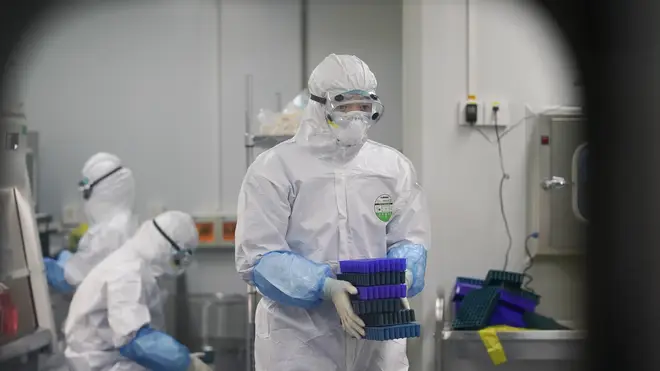
Nick Ferrari 7am - 10am
19 May 2020, 11:49

There is not enough evidence to back up a conspiracy theory, which was given additional credence when mentioned by US President Donald Trump, that suggests Covid-19 was created in a laboratory in Wuhan.
Speaking to the House of Lords Science and Technology Committee, Professor David Robertson said: "It (the theory) seems unlikely given the emergence of an animal market.
"You have a virus that you think comes from an exotic species and then you have a wildlife market - that seems the most parsimonious explanation."
Asked whether a Covid-19 sample found in a Wuhan lab, thought to be about 40 to 50 years old, could have been behind the initial outbreak, the head of viral genomics and bioinformatics at the University of Glasgow added: "No, absolutely not.
Read more: Temporary workers 'were spreading coronavirus between care homes', reports
"That's partly what has driven some of these conspiracy theories, is what is the chance they would have this virus in the labs that is close? And actually, even though it is close in sequence, it is not close in time. "
Prof Robertson: "There is really no evidence for this. We can all enjoy a conspiracy theory but you need to have evidence."
Listen & subscribe: Global Player | Apple Podcasts | Google Podcasts | Spotify
However, Professor John Ball, professor of molecular virology at the University of Nottingham, told the Lord's committee wildlife markets where animals are being kept "cheek-by-jowl" - such as in the so-called wet markets in China - helped "stack the odds in the favour" of viruses transferring to humans.
He said: "Unusually for this virus, it seems as though it was ready-primed to be able to reasonably and efficiently - in fact, very efficiently - infect humans and be transmitted."
Prof Ball added: "Wherever you have a large mixture of different wild animals being kept close together alive then there is always the chance that a virus can jump from one to another and acquire some mutations and that those mutations might then enable it to infect humans and then onwardly transmit.
"It is a lottery for the viruses, it is a game of chance, but you do stack the odds in the favour of the virus if you have lots of these wild animals being kept cheek-by-jowl in these kinds of markets."